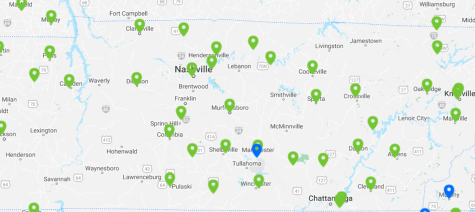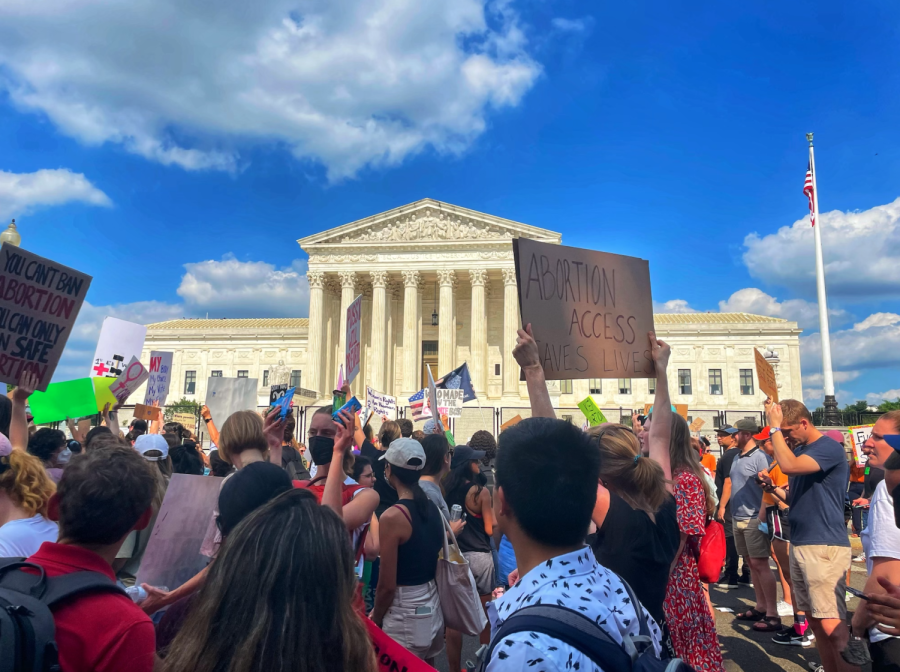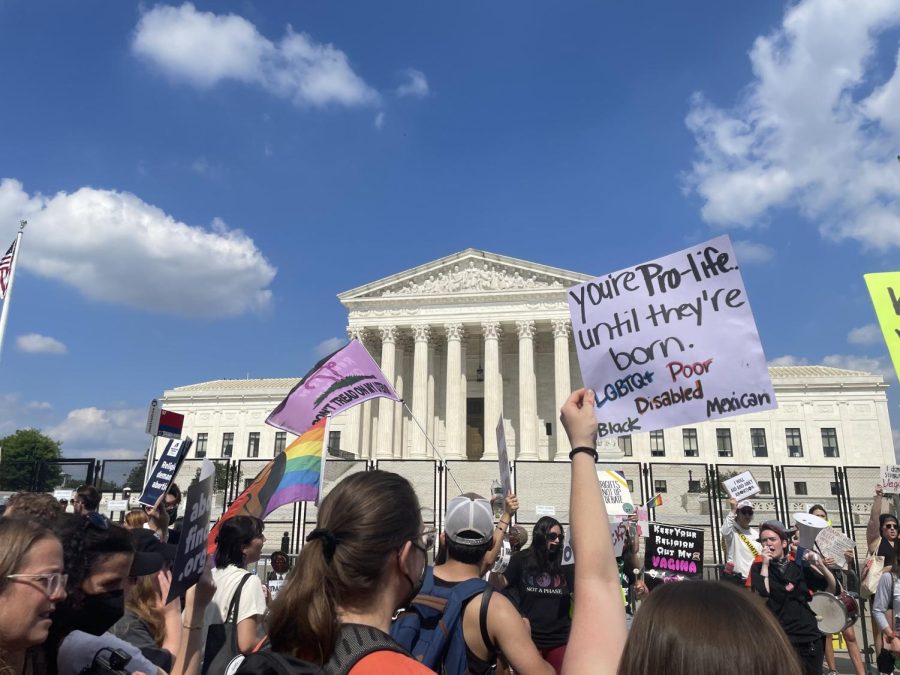The Supreme Court overturned Roe v. Wade (1973) in a 5-4 decision on June 24, abolishing the constitutional right to obtain an abortion. Immediately following this decision, abortion became illegal in nine states, where an estimated 7.2 million female-identifying people of reproductive age are currently living. Thirteen more states are likely or certain to ban abortion past six weeks of pregnancy or otherwise restrict abortion in the next month via “trigger” laws, including our very own state of Tennessee.
The Tennessee State Senate passed the “Human Life Protection Act” in 2019, preemptively banning abortion 30 days following the hypothetical reversal of Roe. The Human Life Protection Act banned abortion after six weeks of pregnancy, with an exception if the pregnancy threatens the impregnated individual’s life or has the potential to cause serious damage to their bodily function. However, the ban came even sooner; hours after the Court’s ruling, the Tennessee State Attorney General filed an emergency motion to ban abortion immediately. On June 28, just four days after Roe was overturned, a federal appeals court approved the motion.
As students in Nashville, we are all affected by the Court’s ruling, regardless of our gender. Here is a guide on how to abort a pregnancy safely and responsibly while living in Tennessee.
Call a clinic for information
Although Tennessee clinics are no longer able to provide abortions, they will still be able to provide valuable information to help you navigate the process. Be careful about which clinics you call in Tennessee.
Although Nashville Planned Parenthood is no longer providing abortions, it is a valuable resource for those looking to end a pregnancy. Staff working at Nashville Planned Parenthood can guide you on getting an abortion by finding you out-of-state medical care and financial assistance. You can call them or go to the clinic in person. Additionally, Abortion Care Tennessee and Mountain Access Brigade are two local organizations that can help you navigate the abortion process by providing extensive assistance on their websites and through confidential phone lines.
That being said, you can’t trust all clinics. Specifically, clinics known as “crisis pregnancy centers” attempt to shame patients out of getting abortions and will often tell lies to intimidate or pressure them into keeping the pregnacy. The Hope Clinic, a faith-based crisis pregnancy center in Nashville, claims to offer support and counseling to impregnated people yet will not provide any medical services beyond ultrasounds and STD testing. There are around 60 crisis pregnancy centers in Tennessee.

Travel
Since you may not be able to get a safe or legal abortion in Tennessee, your next best bet is to travel out of state. As of print, the closest abortion clinic to Vanderbilt that can perform abortions for people who are more than six weeks pregnant is Cobb Center in Marietta, Georgia. Currently, the closest states with no trigger bans where abortion rights are still protected are North Carolina, Indiana, Virginia (for now, but its governor is currently calling for a ban on abortions past 15 weeks) and Illinois. Planned Parenthood clinics in these states are able to perform safe and legal abortions.
If you want to travel to a different state for the procedure, be sure to check that you are within the state’s requirements to legally obtain an abortion. Use Planned Parenthood’s search tool to find a clinic in the area of your choice, and be sure to book an appointment in advance.
Abortion pills
Traveling out of state is not a viable option for many people. Travel is expensive and difficult to arrange, especially for students, many of whom don’t have access to a car and have limited funds. If traveling out of the state is not an option for you, mail-in abortion pills are still federally protected and FDA-approved for up to 10 weeks of pregnancy. The process for a medicated abortion involves two separate pills: mifepristone and misoprostol. First, you would take mifepristone to prevent the fetus from growing. You would then take misoprostol right after mifepristone (no more than 48 hours later). The misoprostol will cause cramping and bleeding, similar to a heavy period or an early miscarriage, as your body aborts the pregnancy. These pills are very safe and effective.
Since Tennessee restricts access to Telehealth abortions, another option is to do an online consultation via AidAccess. After the consultation, a doctor will mail mifepristone and misoprostol straight to you. In Tennessee, the medicine will come from European doctors due to legal restrictions in the state. It will take one to three weeks to arrive, so be mindful of timing. Remember, medicated abortion is only safe for those 10 weeks pregnant or under.
Using AidAccess is the cheapest and simplest way to receive abortion pills in Tennessee. However, other options include mail-forwarding and online pharmacies.
Plan C, a pro-choice information campaign, details the legal risk of mail-in pills on their site. The Nashville District Attorney said that he will not “prosecute any woman who decides to have a medical procedure to terminate a pregnancy or any medical doctor who performs this procedure at the request of their patient.” Regardless, read the legal risks listed by Plan C to review the ways that you can ensure legal protection when self-managing an abortion.
Paying for treatment
Pills from AidAccess cost $110, but the company is willing to work with you financially if you are unable to pay immediately.
Abortion fund organizations like the National Network of Abortion Funds, ARC Southeast and the Midwest Access Coalition can also help you pay for abortion pills and out-of-state abortions. An abortion fund is a group of individuals that provide donations to help pay for abortions if you are unable to do so. Specifically, abortion funds can help with “travel, lodging, child care, doula, and translation services,” according to the National Network of Abortion Funds. Here is a step-by-step list of how to get an abortion in a way that meets your financial and logistical needs.
The reversal of Roe v. Wade may make it harder to receive abortions while living in Tennessee, but I hope that this guide has made the logistics easier to understand for those in need of an abortion. Don’t be afraid to reach out to those you trust for help—you do not have to go through this alone.










